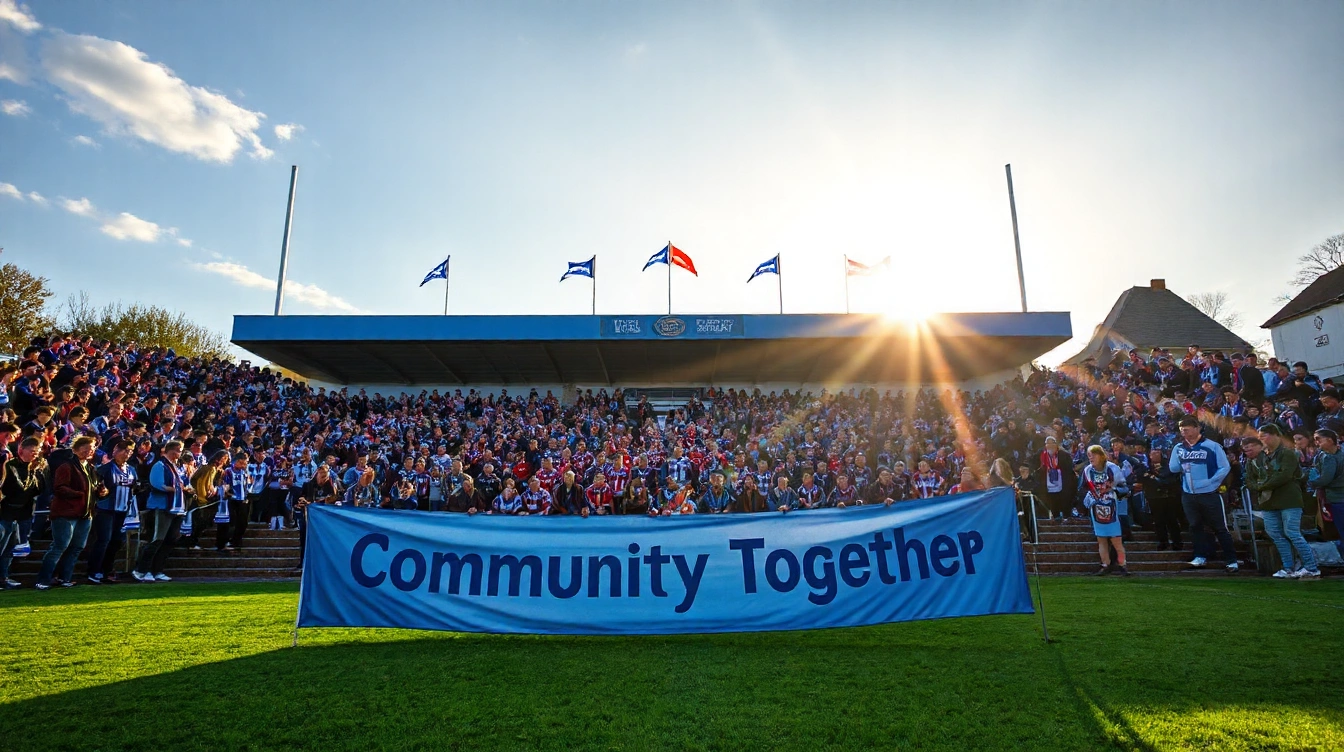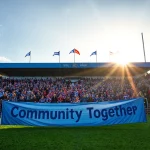Turning Football Passion into Community Action
Football fans community support often extends beyond the pitch, transforming stadium excitement into real-world change. Engaging local fans for grassroots change is crucial in UK football community initiatives. These initiatives harness the passion and loyalty that fans feel, channeling it into projects benefiting their neighborhoods. For example, fan engagement UK football programs encourage supporters to participate in volunteering, youth mentoring, and charity drives.
Fostering a community-first mindset rooted in football enthusiasm helps unite diverse groups. When fans see their favorite clubs actively involved in social causes, it inspires collective responsibility and pride. This mindset motivates supporters to advocate for improvements in education, health, and social cohesion within their communities.
Additional reading : What are the financial strategies used by UK football clubs to remain competitive?
Aligning football fandom with social impact goals creates sustainable momentum for change. Clubs, supporters, and local organizations collaborate to address pressing issues, leveraging the emotional connection football fans share. Such cooperation amplifies the effectiveness of UK football community initiatives, making the sport a powerful tool for positive social transformation. Embracing this synergy between sport and society enhances both fan engagement UK football and the broader community welfare.
Actionable Ideas for Football-Driven Community Support
Football offers a powerful platform for community engagement, especially when linked to charitable causes. One effective football fundraiser idea is organizing charity matches or tournaments. These events can unite local teams and fans, generating funds for important local causes while fostering a sense of belonging.
Have you seen this : How Can Grassroots Football Support the Next Generation of UK Athletes?
Launching football-themed fundraising campaigns is another impactful approach. This might include selling branded merchandise or creating pledges tied to player performance. Such campaigns capture football enthusiasts’ passion and channel it toward sustained giving.
Volunteering through football offers hands-on involvement. Community members can assist with event setup, ticketing, or promotional activities, enriching their connection to both the sport and the cause. Promoting volunteer opportunities at football events encourages people to contribute time and skills, enhancing the event’s reach and success.
Combining these ideas, organizers can create a dynamic, football-driven community support network. Focusing on both fundraising and volunteerism amplifies impact, ensuring football’s spirit translates into meaningful social benefits. This multi-layered approach not only raises awareness but also cultivates lasting community ties through the love of football.
Success Stories: UK Football Fans Creating Impact
Small actions by the UK football community can lead to big changes. Across the country, football fans making a difference have launched initiatives that improve local neighborhoods and support vulnerable groups. These successes showcase how passion for the sport extends beyond the pitch.
Local clubs often spearhead community drives. For example, fans coordinate clean-up days, food banks, and health awareness events. These initiatives foster stronger ties between clubs and supporters, creating a sense of shared purpose. By rallying behind their teams, fans turn loyalty into tangible help.
Donation campaigns are another powerful example. Enthusiastic supporters organise fundraisers, collecting money and goods for charities. These efforts highlight the generous spirit within the fanbase, turning enthusiasm into direct assistance. Such campaigns repeatedly prove how football can unite diverse groups for a common goal.
Collaborative projects with schools and youth groups cultivate positive environments for young people. Fans engage in mentoring, sports clinics, and educational workshops, helping nurture the next generation. This combination of sport and social good builds lasting community bonds and inspires ongoing involvement.
These stories underline how UK football fans can drive meaningful change. Their efforts demonstrate the impact of collective action fueled by a shared love of the game.
Steps for Organising Effective Community Events
Organising football community projects planning starts with setting clear objectives. Define what the event aims to achieve—whether it’s building team spirit, raising funds, or encouraging youth participation. Understanding community needs helps tailor activities that truly engage fans and participants.
Next, gathering support is crucial. Collaborate with local businesses and football fans to pool resources and enthusiasm. Partnering with trusted local entities not only boosts credibility but also provides essential funding or services like venues, equipment, and refreshments.
Promoting these events effectively ensures maximum attendance. Use social media channels popular among UK football fans and community bulletin boards to share details. Eye-catching posters or engaging online campaigns generate interest and excitement.
Execution requires attention to detail: from scheduling matches or activities to managing volunteers and safety measures. Remember, successful football community projects planning relies on smooth coordination, timely communication, and adapting based on participant feedback.
Applying these football community projects planning tips enhances fan experience and strengthens community bonds around the sport. Whether organizing a local match or a fan meet-up, these steps help you create memorable, impactful events.
Collaborating with Clubs and Fellow Fans
Building partnerships for social good starts by approaching football clubs for endorsement and logistical support. Clubs often have the resources and platforms necessary to amplify community initiatives. When a club publicly supports a cause, it lends credibility and encourages fans to engage actively.
Equally important is collaborating with football supporter groups and local organizations. These groups share a passion for the club and community, making them natural allies. Engaging supporters through organized events or joint campaigns fosters a sense of ownership and collective responsibility. This collaboration sustains enthusiasm and ensures diverse perspectives guide the initiative.
To keep initiatives moving forward, sustaining momentum is essential. Clubs can facilitate regular updates and reward fan participation, while supporters can create grassroots events to maintain engagement. Sharing success stories publicly encourages wider participation, forming a positive feedback loop.
Working together—clubs, fans, and local partners—creates a robust support network. Such alliances not only strengthen communities but also use football’s universal appeal as a platform for lasting social impact. This cohesive approach to collaborating with football clubs and fans delivers meaningful and ongoing community benefits.
Measuring Impact and Growing Community Initiatives
Measuring community impact football projects is crucial for understanding their effectiveness. By tracking clear social outcomes—such as increased youth engagement, improved health, or enhanced inclusion—organizers can demonstrate tangible benefits. Using data collection methods like surveys, attendance records, and interviews helps quantify how these initiatives influence participants and local communities.
Incorporating sustainability in football initiatives means focusing not just on short-term wins but creating lasting change. This involves continuous learning from feedback and adapting programs to meet evolving community needs. For example, fan-led projects that regularly assess their impact can identify areas for improvement and adjust activities accordingly, ensuring relevance and high participation over time.
Growing fan-led projects benefits from sharing successful models and best practices. Replicating proven approaches in different regions allows new communities to experience similar positive outcomes. Additionally, fostering partnerships with local organizations, sponsors, and volunteers strengthens resources and outreach capabilities. This cycle of measuring, learning, and expanding creates a robust foundation for sustainable community football initiatives that thrive and inspire lasting social change.







